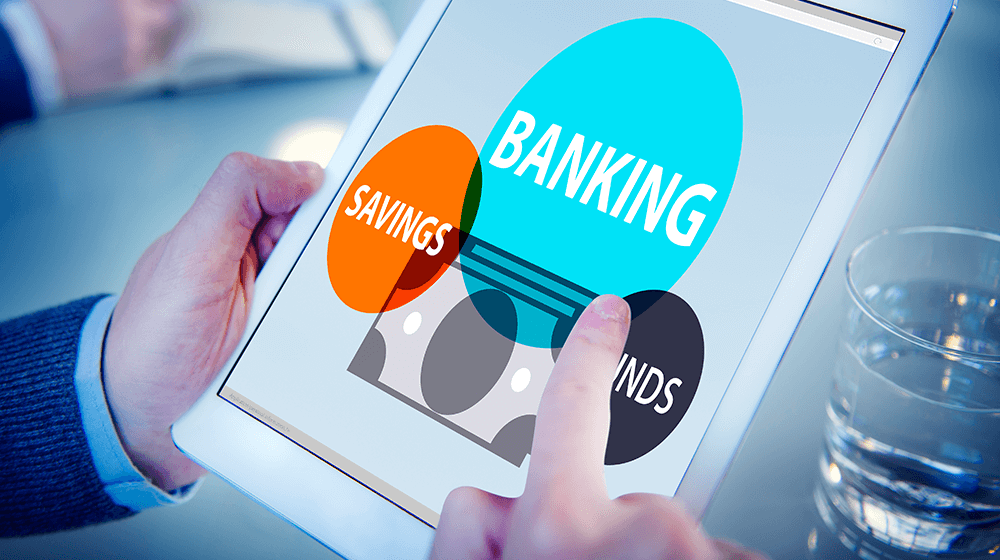Bank Account Opening Process: Everything You Need to Know Before You Open
Bank Account Opening Process: Everything You Need to Know Before You Open
Blog Article
Top Tips for Opening a Checking Account: Guarantee Smooth and Reliable Arrangement
Opening a bank account may appear straightforward, yet a systematic technique can significantly boost the experience and set the phase for an effective banking partnership. By recognizing the variety of account types offered, collecting necessary documentation, and comparing financial institutions, one can avoid usual pitfalls. Additionally, considering the subtleties between online and conventional financial choices is essential. Nevertheless, the most important action often hinges on thoroughly evaluating the terms and conditions-- an element many ignore. What follows could make all the distinction in your banking experience and financial well-being.
Understand Different Account Types
When opening a checking account, it is vital to acquaint yourself with the different account kinds offered. Recognizing these options will certainly enable you to choose an account that finest fits your monetary requirements and objectives.

Financial savings accounts, on the various other hand, are designed for saving cash and usually provide greater rate of interest than examining accounts. They may have withdrawal restrictions, motivating you to conserve gradually. For people seeking a greater yield on their cost savings, CDs provide set rates of interest for a defined term, however they need you to lock in your funds up until maturation.
Additionally, there are specialized accounts like cash market accounts and retirement accounts, each with distinct features and benefits. By adequately recognizing these account kinds, you can make enlightened decisions that line up with your monetary strategy and lifestyle.
Gather Required Paperwork
Gathering the needed paperwork is a critical action in the process of opening a checking account. Correct documentation not just assists in a smooth application process yet additionally aids in confirming your identification, making sure compliance with regulative demands.
In addition, a Social Protection Number (SSN) or Specific Taxpayer Recognition Number (ITIN) is typically required for tax obligation coverage functions. Some bankss might also request evidence of address, which can be demonstrated through utility bills, lease arrangements, or bank declarations.

Additionally, if you are a small, parental permission and recognition may be required. It's recommended to consult the specific bank concerning their paperwork demands ahead of time, as these can vary. By ensuring all required documents are all set, you can quicken the account opening process and prevent prospective delays.
Research Banks and Fees
A complete contrast of different bankss and their charge structures is necessary for choosing the best financial establishment for your requirements. Different bankss use a variety of solutions, and recognizing their charges can significantly affect your total banking experience. Begin by recognizing your banking demands, such as whether you require an inspecting account, financial savings account, or both.
Following, analyze the charge frameworks connected with each account kind. Typical charges consist of month-to-month upkeep charges, overdraft charges, atm machine use charges, and international transaction fees. Some bankss may forgo these costs if you maintain a minimum equilibrium or set up straight down payments.
Furthermore, examine any charges connected to account solutions, such as cord transfers, printed statements, or check orders. It is additionally a good idea to evaluate the rate of interest offered on interest-bearing accounts, as these can differ considerably amongst institutions.
Consider Online vs. In-Person
Choosing between online and in-person banking can significantly affect your overall banking experience and ease (bank account opening). Each option offers unique advantages that accommodate various choices and way of lives
Electronic banking provides a high level of versatility and accessibility. With the capacity to handle your account from anywhere utilizing a mobile phone or computer system, on-line banking enables quick transactions, balance checks, Recommended Reading and costs payments at any kind of time. Furthermore, lots of online bankss provide competitive rate of interest and lower charges as a result of reduced expenses expenses.
Conversely, in-person financial gives a personal touch that some clients may find comforting. Checking out a physical branch enables straight communication with bank agents, which can be specifically useful for complicated queries or economic recommendations. In-person banking also makes it possible for clients to deposit money, acquire instantaneous aid, and develop partnerships with personnel, cultivating a feeling of count on.
Eventually, the decision in between online and in-person financial should be based on your individual demands, convenience level with technology, and the details solutions you require. Consider your banking routines and choices meticulously to determine which choice lines up best with your financial goals.
Review Terms and Conditions

When assessing the problems and terms, pay close interest to crucial elements such as costs, rates of interest, and account functions. Seek month-to-month upkeep charges, deal limits, and fines for overdrafts or very early withdrawals (bank account opening). Comprehending these costs can help you prevent unexpected fees and handle your funds a lot more efficiently
Additionally, think about the interest rates used on financial savings or examining accounts. Greater rates of interest can considerably impact your cost savings over time. It's likewise important to understand the terms associated with bonus offers, rewards programs, and promotional deals, as these can enhance your financial experience.
Finally, ensure you recognize the bank's policies on customer care, dispute resolution, and personal privacy. Familiarizing yourself with these problems will certainly encourage you to make enlightened decisions and establish an efficient connection with your bank. Putting in the time to thoroughly evaluate the conditions can prevent future misconceptions and foster long-lasting satisfaction with your banking experience.
Verdict
In conclusion, a knowledgeable technique to opening a bank account facilitates a smooth and reliable setup procedure. Recognizing the different account kinds, gathering essential documents, and my response looking into bankss and linked fees are important steps.
Opening a bank account might seem straightforward, yet a systematic technique can dramatically enhance the experience and established the stage for a successful banking connection.The most common kinds of accounts consist of examining accounts, cost savings accounts, and certifications of down payment (CDs)Financial savings accounts, on the various other hand, are made for saving cash and normally use higher interest rates than inspecting accounts. Begin by identifying your banking requirements, such as whether you need a checking account, cost savings account, or both.
Recognizing the different account types, gathering needed documentation, and investigating bankss and linked fees are crucial actions.
Report this page